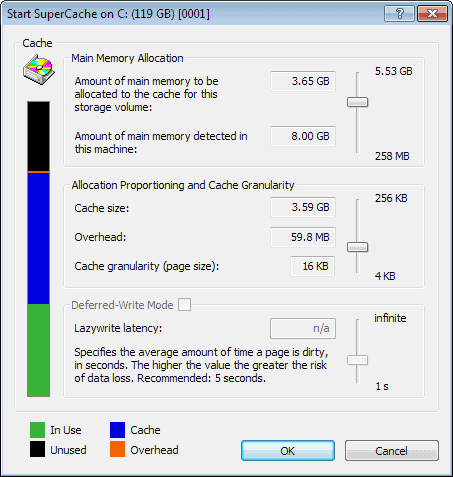

Small super fast intel optane drive (I'm still not clear if all of these are Intel only or not anymore, I feel like the optane drives that were small and for cahce are still intel only, but that the larger PCIe ones work on all platforms?) as the fast drive and a large 2TB Samsung EVO drive as the slow drive. Maybe you discuss this later (I have to contrinue reading past the introduction, I got stuck here) but what WOULD be really interesting - IMHO - is to see if this could be used with a dual SSD setup. (it very well may be) I just feel like the hyperbole and blanket statements in the article just don't jive with my experiences at all. I'm not implying that AMD's new storage technology isn't any good. There really is no need to have a spinning disk in a local machine anymore, unless you have an unusual workload, or are building an extreme budget system.

So, SATA EVO drives are good enough, and (with risk of sounding like Bill Gates) 2TB ought to be enough for anyone (at least today). (note, there are workloads they excel at, but most of these are enterprise type workloads with high queue depthts, like massive heavy databases) The jump to PCIe, M.2 and NVMe has provided some stellar results in benchmarks, but in real world experience on the desktop (load times, system responsiveness) they have done next to nothing that a good SATA SSD doesn't do. Everything since has provided significant limiting returns. The HUGE leap was in going from mechanical drives to first gen SATA SSD's. And yes, they aren't as fast as PCIe NVMe drives, but in the grand scheme of things that is irrelevant too. Even in pretty write heavy environments, they last a decade or longer. (For all those who were complaining that they wouldn't buy SSD's until they hit $1 per GB, this is $0.25 per GB) Yes, EVO drives are TLC, but in practical matters this means next to nothing. It takes less than 15 minutes on a good connection.įurthermore, you can get a 2Tb Samsung 860 EVO for about $500 now. Uninstall it when done, and reinstall it if you want to revisit it. 2-3 games at a time is all anyone really needs. Remember, there is no need to keep every title you own installed. When people do benchmarks for bragging rights they aren't including their slow ass mechanical storage in the mix. Do people sit around and bench their mechanical hard drives and compare virtual dick sizes that way? I don't think they do. I also don't see this as someone cheesing benchmarks. Fire, power surges, viruses, and all other security concerns come into play in that scenario. Even if you are running a RAID 1 setup on your system, any data that resides in that system and remains online and accessible is at risk. Again, this solution doesn't take the place of that or eliminate the need for that. You need a backup solution no matter what you are doing if you care about your data. Granted, this isn't a massive advantage in the sense that a lot of what we throw on those big clunky spinners is data that doesn't need massive performance, but the algorithm that governs this can move whatever does fit that category for you. You will have all the benefits of a big mechanical drive without the huge performance gap you normally see transitioning from an SSD to mechanical storage.

Add to that whatever backup solution you like to employ and you are good to go.
#Fancycache vs supercache plus#
The best configuration I can see for this is a fast NVMe based SSD for your OS and then a 256GB cache drive plus a large mechanical hard drive. I can't use it in my system either, but that hardly makes it a marketing gimmick. How on Earth is performance not usable? It's a solution that works fine in certain situations.
#Fancycache vs supercache cracker#
This technology makes that impossible.Īll in all, it looks more like a toy for use in marketing (like the junky little prize in a box of Cracker Jacks) or for cheesing benchmarks than a usable tool.
#Fancycache vs supercache full#
If it isn't, then it's a non-starter for serious work.įurthermore, I want to be able to pull out a drive with full knowledge of what information I'm removing from the system. Furthermore, the review and slides don't address whether this technology is compatible with backup and disk-imaging utilities. Not being able to handle drive failure, leading to potential loss of important data or an unbootable system, is unacceptable, especially when HDDs are involved, but the article says this technology can't handle it. Speed isn't the only criteria I use in deciding where data should go: reliability and configuration change capability are as well. "AMD StoreMI is not a caching solution it utilizes advanced machine intelligence, virtualization and automated tiering to analyze the data blocks that are most often accessed, and actually moves those blocks to the fastest storage tier."


 0 kommentar(er)
0 kommentar(er)
